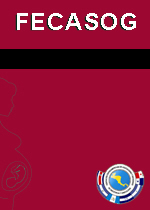The replication crisis in the sciences
Authors
DOI:
https://doi.org/10.37980/im.journal.revcog.20252587Keywords:
editorial, replication crisis, scientific methodAbstract
One of the pillars of the scientific method, the recognized methodology for obtaining new knowledge from observation, experimentation and analysis of the information gathered, is replicability. If a study reaches a conclusion, the scientific community has the obligation to verify the data, since making decisions, particularly those that could affect people's health, cannot be based on the data from a single trial. The statistical significance of scientific studies depends on probabilities and, as such, the first study conducted on a topic can reach the wrong conclusion by chance, no matter how well designed. This is without taking into account other issues, which fall more into the realm of research fraud and which I prefer not to consider at this time.
Since 2010, a worrying trend began to be noticed, which received the name of "replication crisis" and which applies to a methodological problem where the results of many scientific studies fail to be replicated. This only generates suspicion in scientific knowledge and forces to retake old studies, considered reliable, and to repeat them, either to determine if the original conclusions survive the test of time and, if not, the reason behind the failure. It is not the only problem that researchers must face, but it is one of the most pressing, as it lies at the heart of evidence-based medicine. If the evidence starts to be called into question and the evidence increases the weight of uncertainty, the heart of scientific knowledge will start to crack and that would be catastrophic, more so in a world where lying and deceiving, with today's technological advances, is extremely easy.
What to do? Fight doubt with the certainty of a well-done research. Make sure to write a solid methodology, to follow all the guidelines of the ethics committees involved in the approval of the study, to collect the data under the umbrella of the strictest ethical criteria, always prioritizing patient safety, reporting the data as objectively as possible and analyzing the results, not chasing a "p" for statistical significance, but whatever the numbers report.
And, above all, do not be discouraged because the results are negative or because someone else did the same study. This should not be a reason for abandonment, but rather a reinforcement of interest in research. Replicability is crucial to give certainty to what we investigate. Not prestige or academic value.
The truth.
Downloads
Published
Issue
Section
License
Copyright (c) 2025 Infomedic Intl.Derechos autoriales y de reproducibilidad. La Revista RevCog es un ente académico, sin fines de lucro, que forma parte de la Sociedad Centroamericana de Ginecología y Obstetricia. Sus publicaciones son de tipo ACCESO GRATUITO y PERMANENTE de su contenido para uso individual y académico, sin restricción. Los derechos autoriales de cada artículo son retenidos por sus autores. Al Publicar en la Revista, el autor otorga Licencia permanente, exclusiva, e irrevocable a la Sociedad para la edición del manuscrito, y otorga a la empresa editorial, Infomedic International Licencia de uso de distribución, indexación y comercial exclusiva, permanente e irrevocable de su contenido y para la generación de productos y servicios derivados del mismo.








